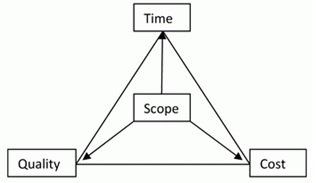SERVICES
In order for us to successfully understand the logistics of our clients’ business model, we work closely to understand their working culture and current processes. Through understanding this information, we build personalised solutions to suit specific businesses dependent upon their needs. The services we provide include but are not limited to: .
Total Quality Management
You need to give something extra to your customers to expect loyalty in return. Quality can be measured in terms of durability, reliability, usage and so on. Total quality management is a structured effort by employees to continuously improve the quality of their products and services through proper feedbacks and research. Ensuring superior quality of a product or service is not the responsibility of a single member. Just Remember, “One happy and satisfied customer brings ten new customers along with him “ Every individual who receives his/her pay check from the organization has to contribute equally to design fool proof processes and systems which would eventually ensure superior quality of products and services. Total Quality management is indeed a joint effort of management, staff members, workforce, suppliers in order to meet and exceed customer satisfaction level. You can’t just blame one person for not adhering to quality measures. The responsibility lies on the shoulder of everyone who is even remotely associated with the organization.
FINANCIAL MGM.
Financial Management means planning, organizing, directing and controlling the financial activities such as procurement and utilization of funds of the enterprise. It means applying general management principles to financial resources of the enterprise.
Scope/Elements. Investment decisions includes investment in fixed assets (called as capital budgeting). Investment in current assets are also a part of investment decisions called as working capital decisions. . Financial decisions - They relate to the raising of finance from various resources which will depend upon decision on type of source, period of financing, cost of financing and the returns thereby. . Dividend decision - The finance manager has to take decision with regards to the net profit distribution. Net profits are generally divided into two: . Dividend for shareholders- Dividend and the rate of it has to be decided. . Retained profits- Amount of retained profits has to be finalized which will depend upon expansion and diversification plans of the enterprise.
PROJECT MGM
Project management is the application of processes, methods, knowledge, skills and experience to Achieve the project objectives.

A project is a unique, transient endeavour, undertaken to achieve planned objectives, which could be defined in terms of outputs, outcomes or benefits. A project is usually deemed to be a success if it achieves the objectives according to their acceptance criteria, within an agreed timescale and budget. A key factor that distinguishes project management from just 'management' is that it has this final deliverable and a finite timespan, unlike management which is an ongoing process. Because of this a project professional needs a wide range of skills; often technical skills, and certainly people management skills and good business awareness.
Human Resource Management
Human Resource Management (HRM) is the term used to describe formal systems devised for the management of people within an organization. The responsibilities of a human resource manager fall into three major areas: staffing, employee compensation and benefits, and defining/designing work. Essentially, the purpose of HRM is to maximize the productivity of an organization by optimizing the effectiveness of its employees. This mandate is unlikely to change in any fundamental way, despite the ever-increasing pace of change in the business world.
BUSINESS STRATEGIES
Strategy is the direction and scope of an organisation over the long-term: which achieves advantage for the organisation through its configuration of resources within a challenging environment, to meet the needs of markets and to fulfil stakeholder expectations.
DATA COLLECTION & RESEARCH
Data collection is the process of gathering and measuring information on variables of interest, in an established systematic fashion that enables one to answer stated research questions, test hypotheses, and evaluate outcomes. The data collection component of research is common to all fields of study including physical and social sciences, humanities, business, etc. While methods vary by discipline, the emphasis on ensuring accurate and honest collection remains the same.
